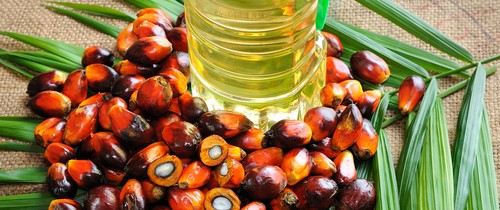Unilever, Hershey Commit to 100% Traceable Palm Oil by Year End
This may wind up being a milestone year for sustainable palm oil production as high-profile manufacturers focus on their sourcing of the ubiquitous vegetable oil.
Consumer products conglomerate Unilever and the Hershey Co. chocolate brand recently pledged they’ll be able to trace the sources of all palm oil they purchase by the end of 2014.
Unilever in November said it was making a major move to “accelerate market transformation towards sustainable palm oil,” with all the palm oil it purchases globally becoming traceable to “known sources” by year end.
The owner of such brands as Ben & Jerry’s, Knorr, Dove, Vaseline, Slim-Fast, Klondike and Ragu is one of the world’s major palm oil buyers, purchasing some 1.5 million metric tons of the oil and its derivatives annually, an amount equal to 3 percent of global production.
“Market transformation can only happen if everyone involved takes responsibility and is held accountable for driving a sustainability agenda. Our progress has been made possible by the commitment and efforts of a number of our strategic suppliers,” Unilever Chief Procurement Officer Marc Engel said in announcing the commitment.
A month later, Hershey, which calls itself “a very small consumer in the palm oil market,” said it would work with its suppliers to achieve 100 percent traceable and sustainably sourced palm oil by the end of 2014.
“The Hershey Company is committed to continuous improvement and transparency in our sustainable sourcing efforts,” Frank Day, Hershey vice president of global commodities, said at the time. “Our move to source 100 percent traceable palm oil is the latest step forward in our efforts to ensure we are sourcing only sustainably grown palm oil that does not contribute to the destruction of wildlife habitat or negatively impact the environment.”
Hershey said it will work with suppliers to make sure its palm oil comes from sustainable sources. Its suppliers will have to independently verify that their sources don’t contribute to deforestation or wildlife-habitat destruction; don’t clear high carbon stock forests (such as old-growth forests) or contribute to peat land expansion; and comply with local laws. The company also said it achieved its goal of sourcing 100 percent Roundtable on Sustainable Palm Oil-certified palm oil a year earlier than its 2015 commitment.
Palm oil, used as a cooking oil and in processed foods, ice cream, margarine, shampoo, soaps and cosmetics, as well as in industrial applications, accounts for a majority of all vegetable oils traded globally, according to the U.N. Food and Agriculture Organization. Production has doubled over the past decade and continues to grow.
The use of sustainably sourced palm oil is an important goal for environmentalists, as cultivation of the oil palm tree on tropical plantations has destroyed habitat for endangered species such as tigers, elephants and rhinos, according to conservation group WWF. Plantation development also has caused the expulsion of indigenous forest-dwelling people, WWF says.
“Unilever’s 2014 commitment marks a very promising step on the continuing journey towards real market transformation to sustainable palm oil. Unilever’s role and actions have been instrumental on this journey so far,” Richard Holland, WWF’s market transformation director, said. Unilever a decade ago helped found the Roundtable on Sustainable Palm Oil and has been buying RSPO-certified palm oil. WWF ranks Unilever among the top companies on its palm-oil scorecard, while Hershey scores 10 out of 12.
“We will continue to work with Unilever and others through the RSPO to encourage further certification by growers and buying of certified palm oil by manufacturers and retailers,” Holland said.





